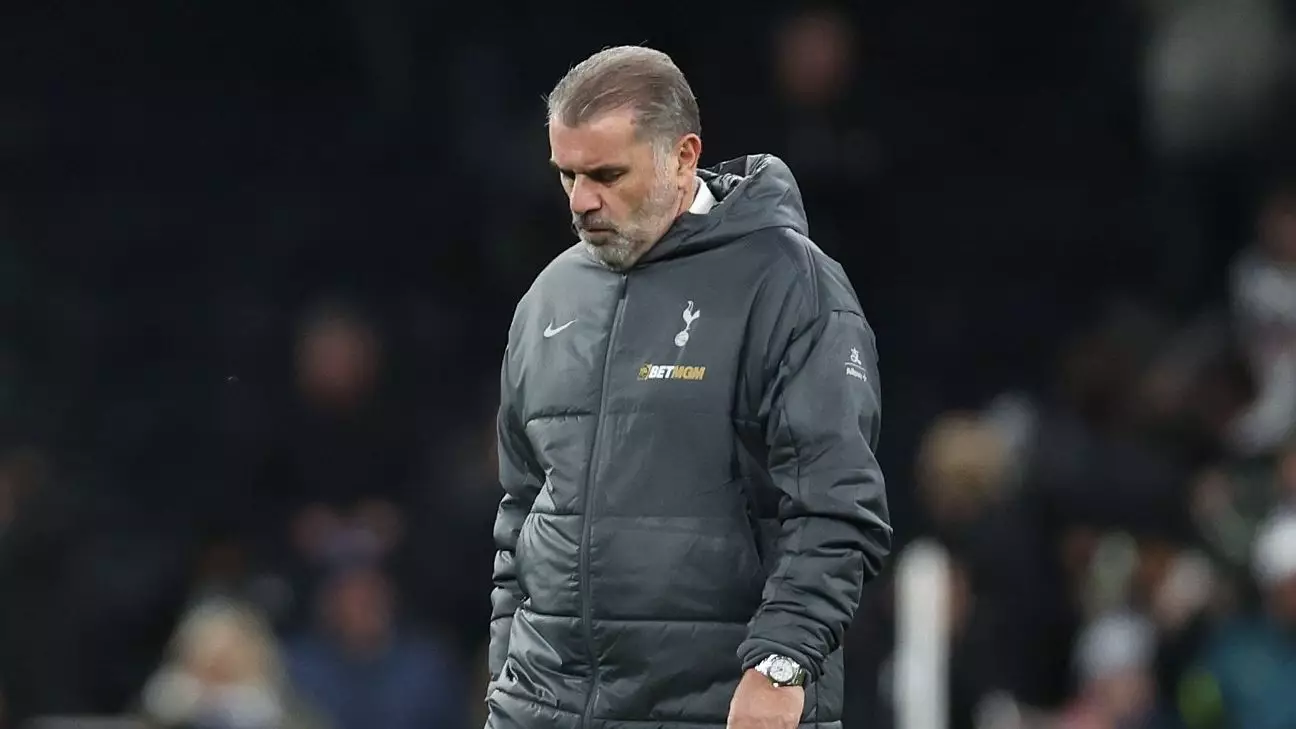Ange Postecoglou, head coach of Tottenham Hotspur, has come under scrutiny following a disappointing 6-3 defeat at home to Liverpool. This match not only highlighted the glaring defensive frailties of Spurs but also brought into question Postecoglou’s steadfast commitment to his attacking philosophy. Despite criticism and a significant loss, Postecoglou’s insistence on maintaining his approach has become a defining characteristic of his coaching style. This article delves into the implications of his philosophy, the challenges currently faced by the team, and the long-term vision that might eventually bear fruit, even in turbulent times.
Tottenham’s recent match against Liverpool served as a significant indicator of the team’s defensive vulnerabilities. With the loss, Spurs remained at the mid-table position, 11th in the Premier League, and alarmingly, they have conceded 15 goals in just six games. This statistic is troubling for any team aspiring to compete at the highest level. During his post-match comments, Postecoglou was adamant about not shifting from his attacking principles, stating that external pressures to alter his strategy would not dictate his decisions.
His refusal to bow to criticism can be seen as a double-edged sword. While it demonstrates a certain level of conviction and belief in his methods, one cannot overlook the reality that continual losses can demoralize a squad. The players are likely aware of their defensive insufficiencies, and such heavy defeats may lead to a loss of confidence, which is detrimental in a league as competitive as the Premier League.
Postecoglou’s comments about injuries affecting his team’s performance cannot be ignored. Key players such as goalkeeper Guglielmo Vicario and center-backs Micky van de Ven and Cristian Romero have been sidelined, diminishing the team’s overall defensive solidity. These absences have become central to the narrative underpinning Tottenham’s struggles.
In the face of adversity, Postecoglou argued that those who overlook these circumstances might not fully understand the struggles faced by the squad. This highlights a crucial aspect of coaching—context matters. However, it also introduces the question: how long can a team use injuries as a justification for poor performance? The football community often possesses a short memory, and eventually, excuses will wear thin.
In defending his approach, Postecoglou emphasized that his attacking philosophy was intended to foster long-term success rather than provide immediate results. This perspective reflects a broad understanding of modern football dynamics, where teams must balance offensive flair with defensive discipline.
The mention of being patient over the past 18 months does indicate a willingness to stick to his guns, and perhaps, with the right players and injury recoveries, a more cohesive unit will reflect this vision. It might be amusing to consider that some fans and pundits see his passion as stubbornness; however, there is merit in staying true to one’s philosophy, provided that there is a clear roadmap in place.
The overarching question remains: Can Postecoglou’s commitment to attacking football ultimately lead to success at Spurs? History has shown that many coaches have experienced turbulence before achieving clarity and effectiveness in their playing style. Whether fans and management are willing to endure through the rough patches will significantly shape the future trajectory of Postecoglou’s tenure.
The road ahead will be critical. As the squad looks to integrate returning players and build cohesion on the field, success may not be immediate but could develop over time. The challenge for Postecoglou lies not only in restoring confidence within his squad but also in persuading stakeholders of his vision’s legitimacy amidst the current chaos.
Postecoglou’s approach is fraught with risks that accompany his attacking football principles. Whether this method will yield the desired results is uncertain, but the determination to maintain his philosophy amidst adversity distinctly characterizes his journey as Tottenham’s head coach. As the situation evolves, fans and analysts alike will be eager to see if Postecoglou’s strategy ultimately pays off or leads the club down a different path.

